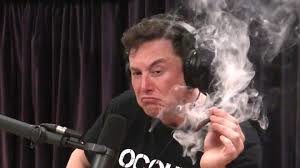What happens when a company depends on the largesse of the federal government to survive?
Tesla may soon find out.
We wrote about Tesla in August 2018, noting that the company had taken the largest leap upward of any company on the Fortune 500 and was listed at #260. And we noted in April 2017 that Tesla had become the number one auto manufacturer in the America, based on market cap.
We also wrote that the electric vehicle (EV) market would most likely not exist without government subsidies. Since 2010, purchasers of EVs and plug-in hybrids have received a federal tax credit of $7,500, as well as state tax credits of as much as $5,000. In Massachusetts, the credit is $1,500.
Imagine the impact if subsidies went away and an automobile suddenly became $12,500 more expensive.
That’s not quite what’s happening, but the federal hadouts for Tesla may be dwindling. The federal tax credit was supposed to provide support for EV manufacturers until they sold their first 200,000 vehicles, after which it would be reduced.
Because it sold 200,000 EVs, Tesla’s EV federal tax credit was reduced to $3,750 at the beginning of the year and through this month. Beginning next month and for the rest of the year, they will drop to $1,875. Then, unless Congress acts, they will disappear when the year ends.
However, a bipartisan bill introduced in April, the Driving America Forward Act, would grant Tesla and other EV manufacturers a $7,000 tax credit for purchasers of an additional 400,000 vehicles.
The Obama administration also pledged $2.4 billion in federal grants in 2009 to support the development of EVs and batteries.
Subsidizing What?
Subsidizing an industry for many years might make sense if it is helping the environment, but it’s questionable whether that’s the case with EVs.
In countries like France, which depends heavily on nuclear power, electric cars can reduce pollution. Not so in many other countries, including Germany, which went all in for solar and increased its dependence on fossil fuels as a result.
Interestingly, many of the same people who are advocates of electric vehicles oppose the continued use of nuclear power, which still accounts for about 20% of U.S. energy.
But take away nuclear power and you take away EVs’ environmental advantage. While emissions may not spew out of the exhaust of a Tesla, the electricity that powers the Tesla’s batteries is mostly generated by fossil fuels.
“If e-cars are running on electricity produced by burning dirty fossil fuels, climate benefits are limited,” according to DW Akademie. “Because of the complex batteries they use, it currently takes more energy to produce an electric car than a conventional one. And, disposing of those batteries creates an environmental hazard.”
Plenty to Worry About
Meanwhile, Tesla has plenty of other issues to worry about, such as falling sales.
Total deliveries fell to about 63,000 for the first quarter of 2019, a 31% decrease from the fourth quarter of 2018, The Wall Street Journal reported.
“The inhibitor is affordability,’’ CEO Elon Musk told analysts earlier this year. “It’s got nothing to do with desire.”
In other words, keep those subsidies coming, Congress.
Telsa is also depending on the opening of a plant in China for much of its growth. Last month Tesla began taking orders for a Model 3 with a starting price that’s $11,000 less than a version being exported from California to China. Even without the current trade war, opening a plant in China and ramping up global production would be challenging.
There have been plenty of other issues affecting Tesla, including Musk’s tweeting about an alleged investment in the cash-starved company, other ongoing spats with the U.S. Securities and Exchange Commission, Musk appearing to be smoking marijuana during a podcast, and Musk criticizing analysts during an earnings call and calling their questions boring.
There’s nothing boring about Elon Musk.
